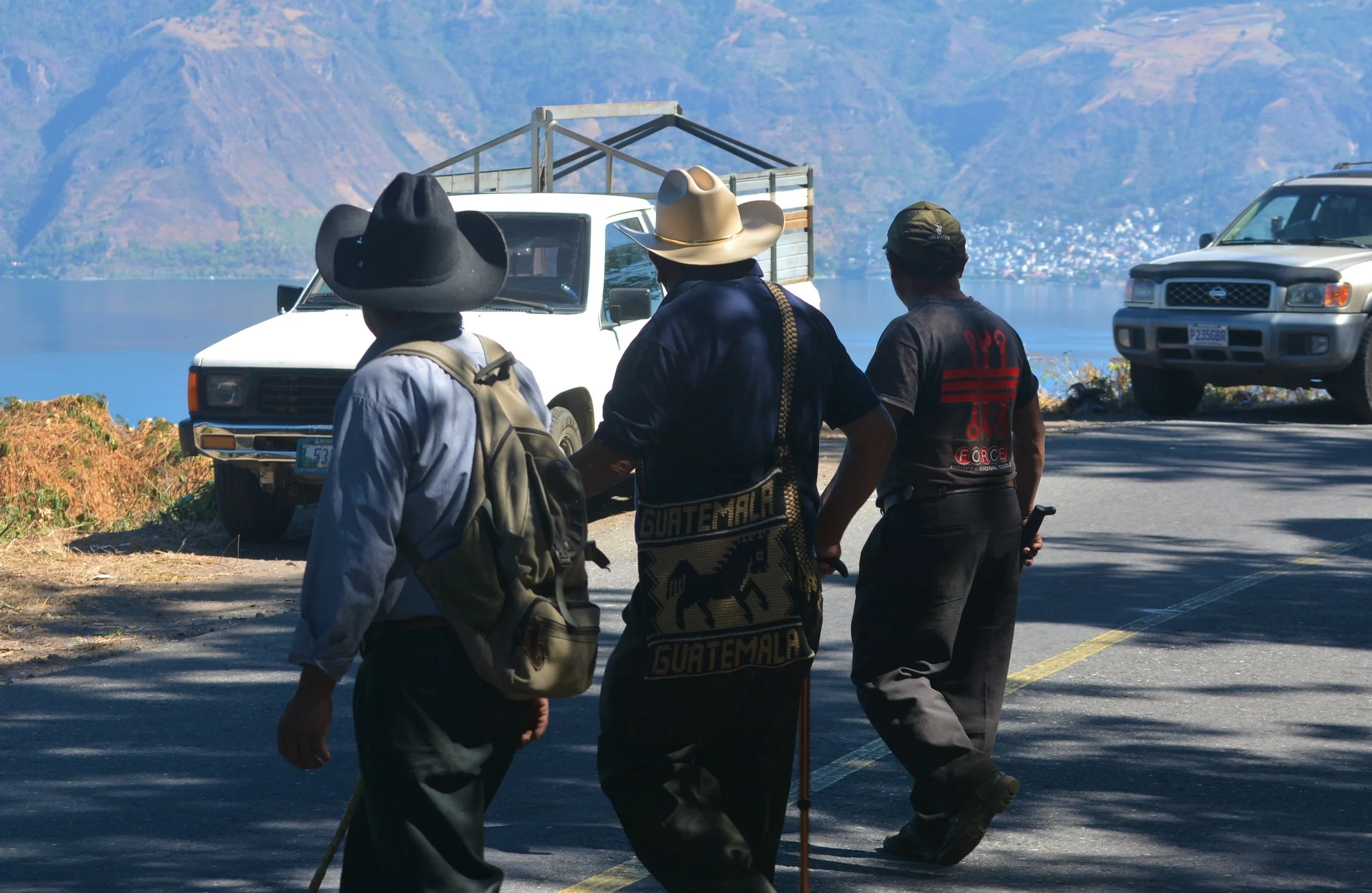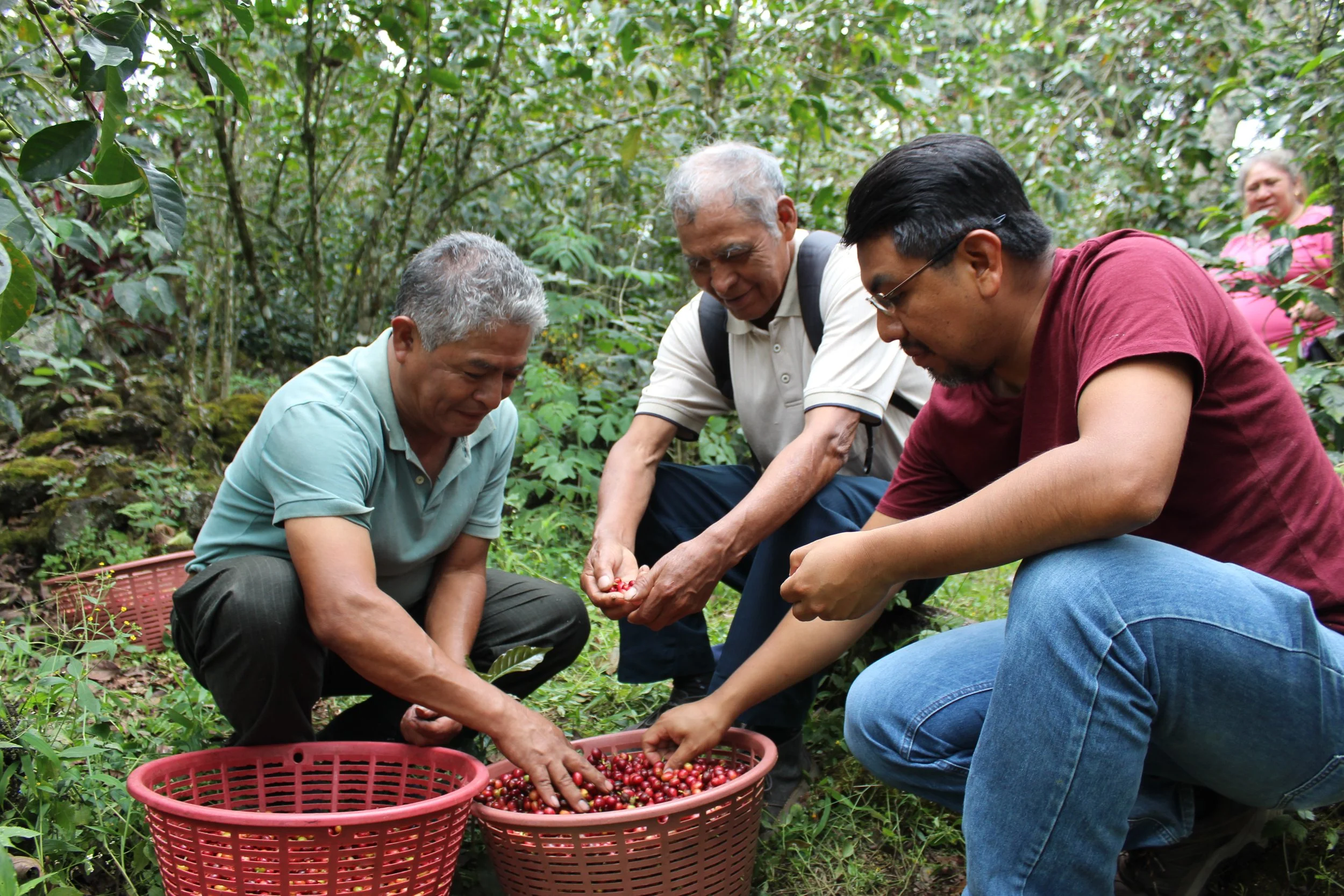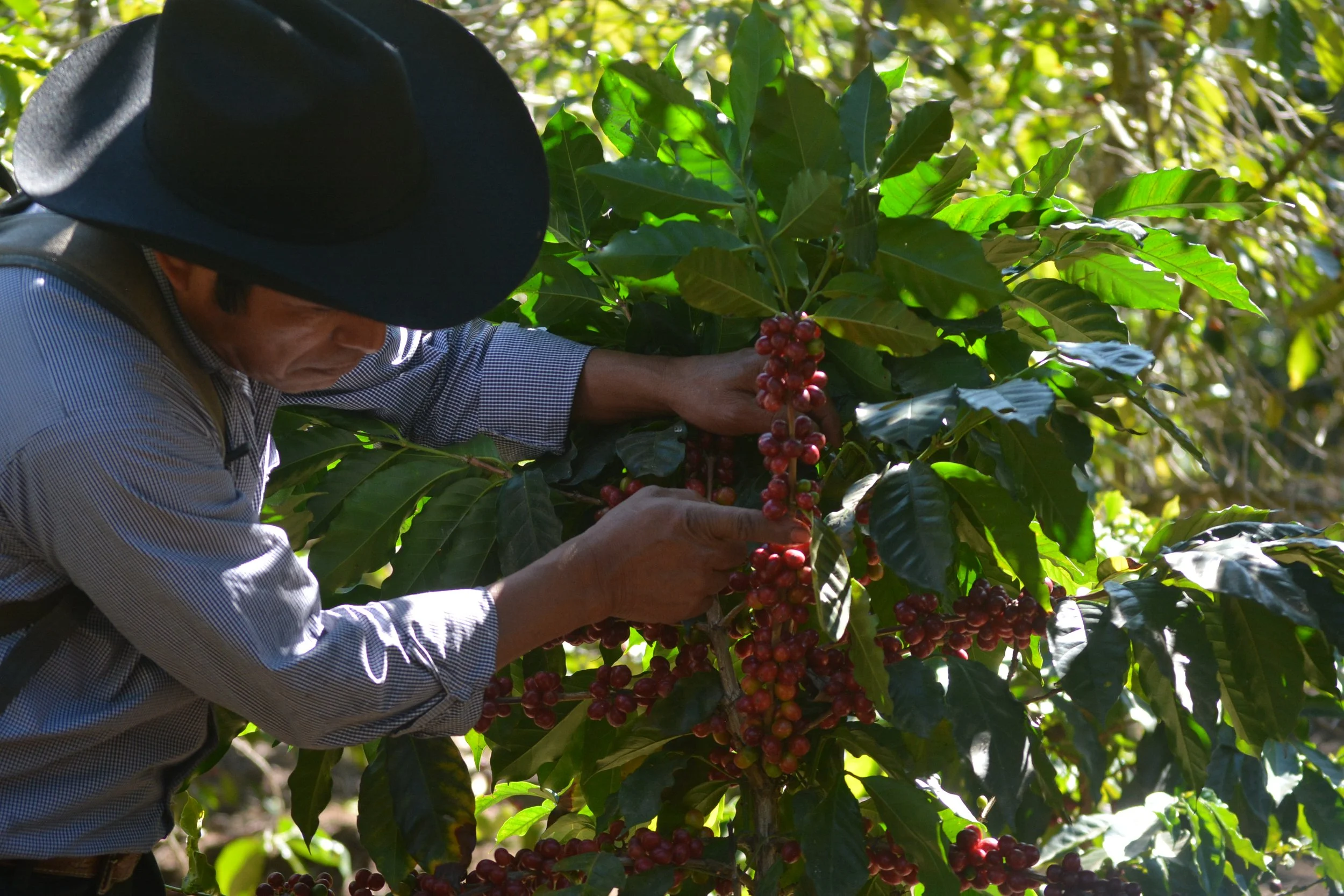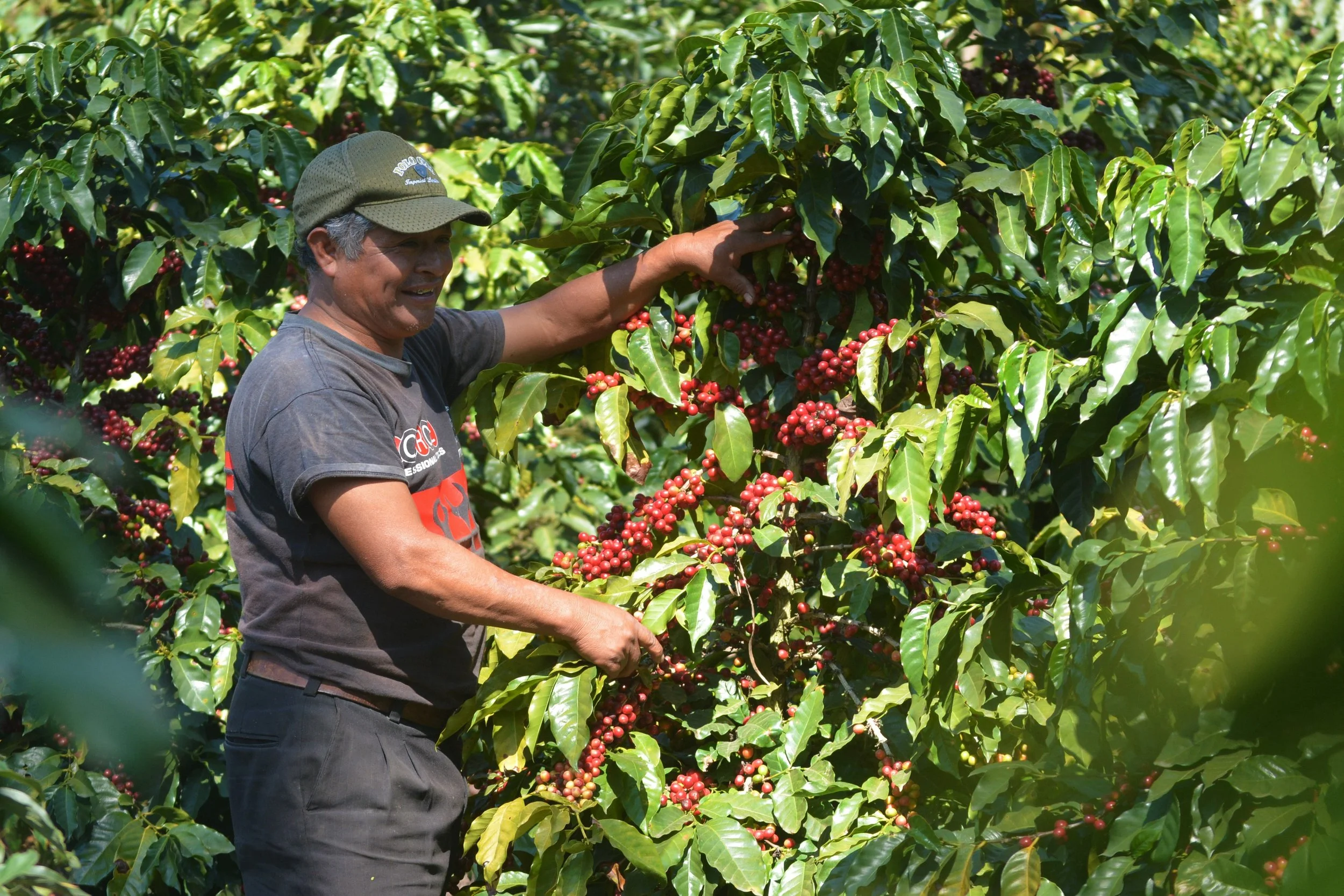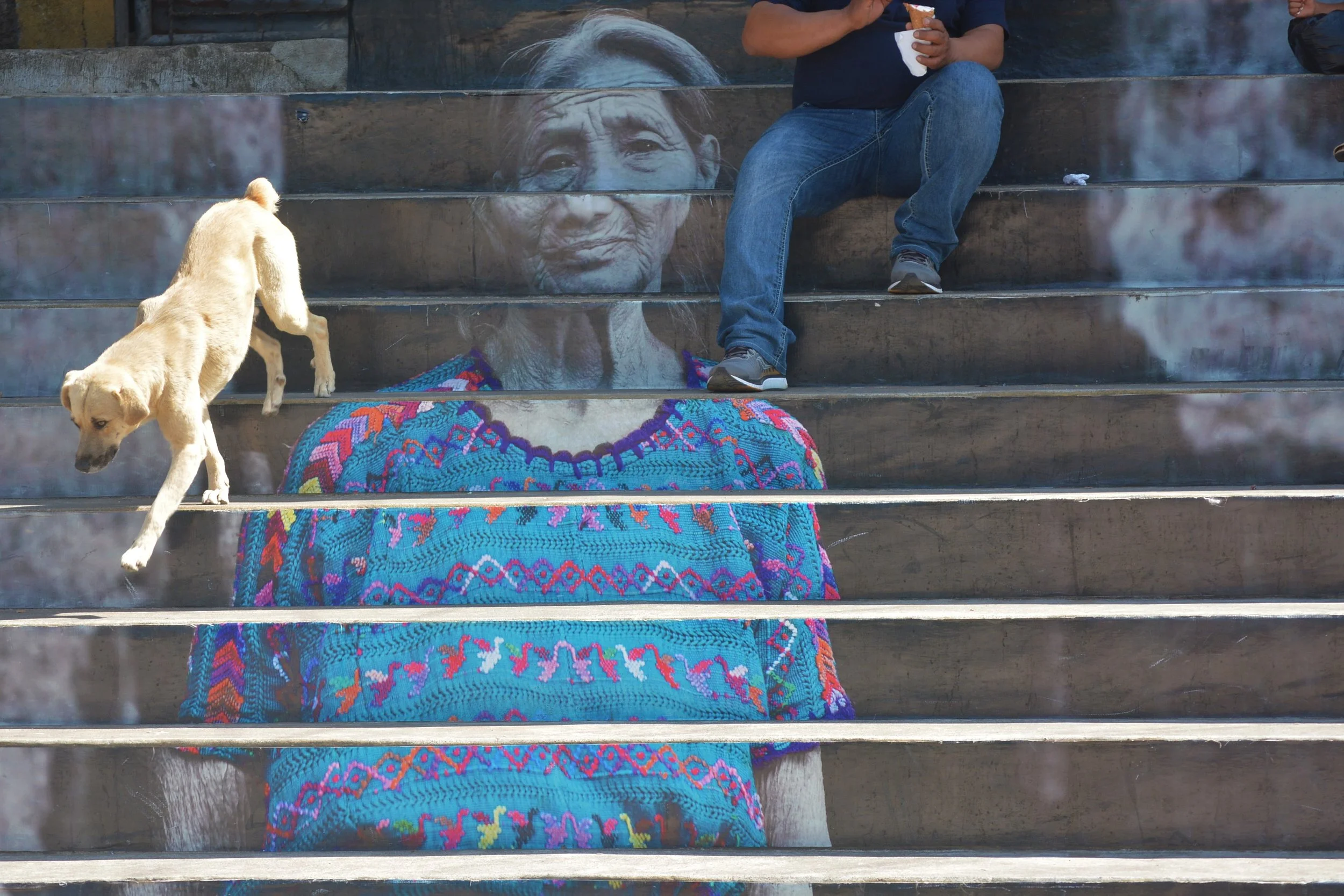The Indigenous Farming Community of Ija’tz Cooperative - Traditional Farming that Sustains Coffee and People
by Aliisa Oake
Groups of coffee producers in Guatemala remain true to their heritage by continuing the use of traditional farming. As agriculture evolves and modern farming methods become more widespread, this is not only important to the environment, but also to their heritage - honoring the work of their ancestors through coffee cultivation.
In some regions of Guatemala, coffee producers with Mayan heritage have continued to cultivate coffee using traditional farming methods that prioritize sustainability and environmental stewardship in every step of the coffee cultivation process. One indigenous farming community known for traditional coffee farming based on indigenous knowledge are the coffee growers of Ija’tz Cooperative.
Ija’tz Cooperative - Coffee Growing Guided by Indigenous Knowledge
Nestled within the foothills of three volcanoes that dominate the landscape of Lake Atitlán is the town of San Lucas Tolimán. At an elevation of just below 2,000 meters, lie luscious fields of coffee trees that grow alongside native plants and shade trees. As the sun shines over the stunning waters of Lake Atitlán, dawn signals for another day of life within a coffee farm - for both the native species in the area and the coffee growers of Ija’tz Cooperative.
The community of Ija’tz Cooperative, along with many other residents of the towns surrounding Lake Atitlán, are descendents of Maya Kaqchikel heritage. The members of Ija’tz Cooperative are also an indigenous farming community who have been practicing traditional farming for generations, preserving traditions of their Mayan ancestors in coffee cultivation. By tying their values with coffee farming, they work with the natural patterns of their environment and the ecosystem, which furthers their commitment to environmental preservation, as well as providing economic stability to the members of their community. Through their in-depth knowledge of their environment, they cultivate coffee by working in harmony with nature, resulting in the production of coffee that’s just as good for the environment as it is for its consumers.
How Traditional Farming Methods Strengthen Coffee Cultivation
Since their establishment in 1995, Ija’tz Cooperative members have had a deep understanding of their local ecosystem. They began operating as a seed bank of native trees in the area, hence their name Ija’tz, which means seed in Kaqchikel. Later on, they saw an opportunity to produce coffee, which they began while also preserving the native trees and using indigenous knowledge that respects the land.
Over the years, their goals have remained strong and guide their work. One of their goals is to cultivate coffee through traditional farming, while also reclaiming and protecting the land and its surrounding environment. Their coffee cultivation process often involves sustainable farming practices such as cultivating shade-grown coffee through the use of agroforestry and intercropping, along with other methods that enhance soil health naturally, like composting.
What Is Agroforestry and Intercropping?
Agroforestry is when coffee plants are grown alongside other crops that support each other by enhancing soil fertility and maximizing land usage. This also provides shade, and takes advantage of the ecosystem’s high quality soil health, biodiversity, and diminished levels of runoff in the region. Intercropping is similar, as other trees and crops are planted in areas of coffee farms.
With these farming techniques, some native plants that may be incorporated within coffee trees are fruit trees, like avocado trees, mandarin trees, or banana trees, and other food crops beans, squash, and even cacao trees. Additionally, timber trees like the inga tree, which is native to Guatemala, is a nitrogen-fixing tree that enriches the soil with nutrients as well as providing shade. This is also a common tree that is used for fire wood, where community members can sell timber or keep it for personal use.
Throughout the coffee farms owned by members of Ija’tz Cooperative, coffee trees grow strong under the canopy of other trees, mimicking the natural way that coffee grew before its popularity and modernization - which was in unison with its natural environment. When coffee is grown in the shade of other trees, it’s referred to as “shade-grown coffee”. Shade grown coffee tends to have a better flavor due to the slower ripening process, which allows coffee cherries to develop more sugars and the complex flavors that Guatemalan coffee is known for. The shade provided by trees and other plants also creates a more stable growing environment, providing additional microclimates, improving soil health, and reducing the impact of the effects from drastic weather changes.
Another method used by the members of this indigenous farming community is worm composting, which is also known as vermicomposting. By incorporating red worms in compost bins, it speeds up the composting process as the worms consume and digest the dirt, composting natural material into a richer organic matter. Worm composting aids in the creation of a more nutritious soil in a natural way, as the remaining, worm-composted soil contains more micro-organisms and nutrients than normal soil, like nitrogen, phosphorus, and potassium. In coffee farming, nutrient-rich soil is incredibly beneficial for coffee farming since it provides more of the essential nutrients that coffee plants need to thrive. Healthy soil leads to steady growth rates, high harvest yields, and high-quality coffee beans. Worm composting also benefits the environment, as it helps with waste reduction where food scraps and organic waste is converted into nutrient-rich compost, diminishing waste that would otherwise go into landfills.
Indigenous Farming Communities - Cultivating Coffee in Harmony with the Environment
The members of Ija’tz Cooperative assist in the preservation of native plants and the environment through coffee farming, which is part of climate-smart and regenerative agriculture. Through the use of traditional farming methods, numerous benefits are created for the sustainability and longevity of their environment, economy, and social well-being. Members of this indigenous farming community will continue on their path towards a more environmentally friendly, socially responsible, and economically viable coffee industry.
Ija’tz also has a long history of implementing community-based projects that are driven by local needs. Their implementation of a community nutrition program has increased food security by providing more access to healthy food, encouraging community engagement, and promoting a higher well-being. One project that they completed was to construct an environmentally sustainable water management system consisting of a sequence of channels and drainage ditches. The goal of this was to improve water flow during the rainy season and help to prevent flooding in San Lucas Tolimán. Additionally in 2018, a group from our Immersion Program constructed fermentation tanks to assist in a more controlled fermentation process to create washed processed coffee. De La Gente also assisted the cooperative with building worm composting beds to help increase their coffee yields during harvest season.
Members of Ija’tz Cooperative see coffee farming as a part of their legacy. By tying together indigenous knowledge with traditional farming methods, they place a deeper meaning on the value of coffee cultivation. Coffee provides reinforcement of their cultural identity, strengthens their relationships with one another, and fosters a deeper connection. For them, coffee cultivation has reinforced cultural identity, resilience, and pride, creating a community that values the Earth and its people.
Sources:


